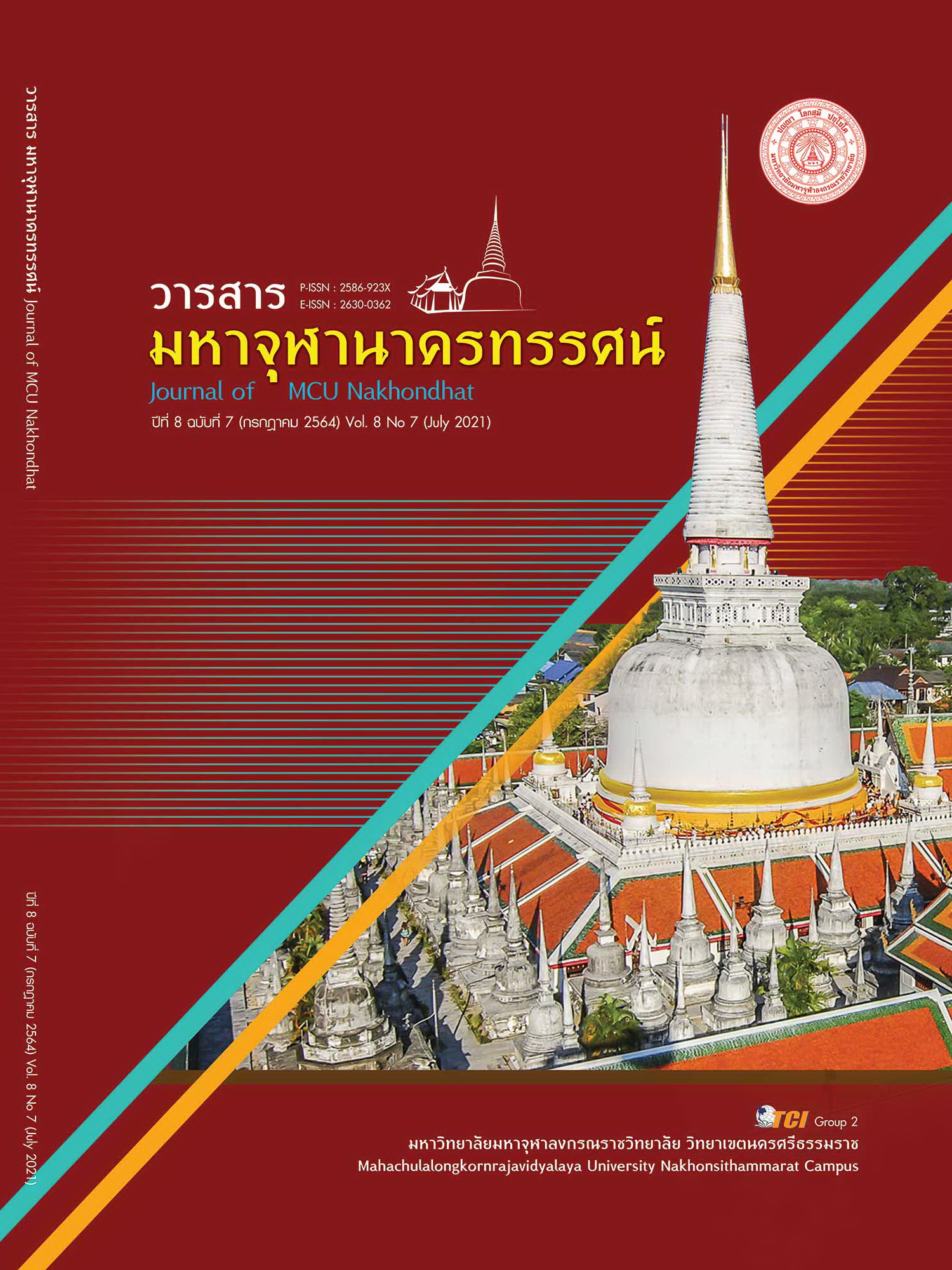THE PARTICIPATION OF THE NEW GENERATION IN ORGANIZING ACTIVITIES PROMOTING BUDDHISM
Main Article Content
Abstract
This article It is a study to promote the new generation's participation in organizing religious activities. In our country of Thailand, there are many social problems that arise all the time, including drug problems, family problems, health problems. But that is evident and affects the well-being of the people in society. But nowadays the new generation does not have time to join with the activities of the temple. Because you have to do for a living Getting them to attend to the big day. In Buddhism, or for people to help each other study and practice the power of faith in order to create good values from Buddhism into practice by being far from abode Cultivate forgiveness Do the right thing, love yourself, love those around you, love society and the country. In which the teachings of the Lord Buddha are the Prophet, which will enable people to live smoothly. When the new generation has come to understand the teachings Will make them know how to live in this world so that they are not suffering, not disrupted, not troubled. It is to promote the new generation to do activities with Buddhism that will be more or less effective. It does not depend on people participating in Buddhist activities alone. But the younger generation can participate in activities without having to bring their bodies to the temple. Where can you do that? Because Buddhism teaches you to be good Therefore, our goodness can be done anytime, anywhere, that is, with the participation of the new generation that can be done.
Article Details
References
พระมหาจรรยา. (2562). ดูโลก ดูธรรม และดูใจ. เรียกใช้เมื่อ 9 มีนาคม 2564 จาก http://www.siamtownus.com/2016/New-1905000028-1.aspx
พิพิธภัณฑ์เรือนโบราณล้านนา มช. (2564). วันมาฆบูชา 2564. เรียกใช้เมื่อ 9 มีนาคม 2564 จาก https://art-culture.cmu.ac.th/Museum/contentdetail/2122
ศิวิไล สังฆภัณฑ์. (2561). การบวชสามเณรฤดูร้อนได้อะไรบ้าง. เรียกใช้เมื่อ 23 ธันวาคม 2563 จาก http://www.svlsangkapan.com/เกร็ดความรู้/การบวชสามเณรฤดูร้อนได้
ศูนย์อบรมคุณธรรม. (2557). โครงการอบรมพัฒนาคุณธรรม จริยธรรม. เรียกใช้เมื่อ 9 มีนาคม 2564 จากhttps://ess.facebook.com/bankluaykr7/posts/322138844606 229/
สมทรง ปุญญฤทธิ์. (2545). มารยาทชาวพุทธ. กรุงเทพมหานคร: ธรรมสภา.
สามารถ มังสัง. (2563). โควิด 19 ระบาด: เหตุให้เศรษฐกิจและสังคมแย่ลง. เรียกใช้เมื่อ 8 มิถุนายน 2563 จาก https://mgronline.com/daily/detail/9630000059231
สุภฎารัตน์ สุธีพรวิโรจน์. (2555). ทำบุญปีใหม่ เติมใจด้วยธรรมะ. เรียกใช้เมื่อ 23 ธันวาคม 2563 จาก https://www.pharmacy.cmu.ac.th/web2553/n73.php
เอื้องฤทัย. (2555). ความยากจน ปัญหาที่ไม่เคยหมดไปจากสังคมไทย. เรียกใช้เมื่อ 23 ธันวาคม 2563 จาก http://pan-ha-khuam-yak-jon.blogspot.com/2012/02/ blog-post_17.html.
9ddn. (2564). ประเพณีทำบุญเข้าพรรษา หล่อเทียน และแห่เทียนพรรษา. เรียกใช้เมื่อ 9 มีนาคม 2564 จาก http://www.9ddn.com/content.php?pid=298.


